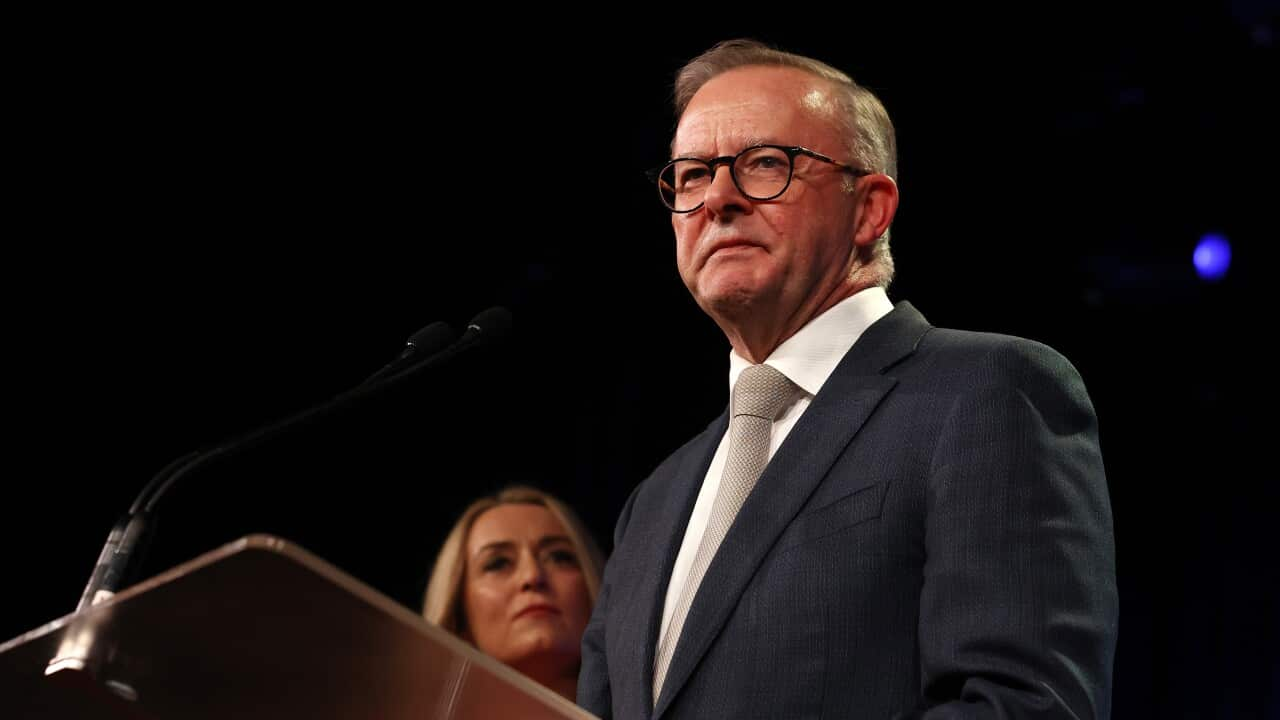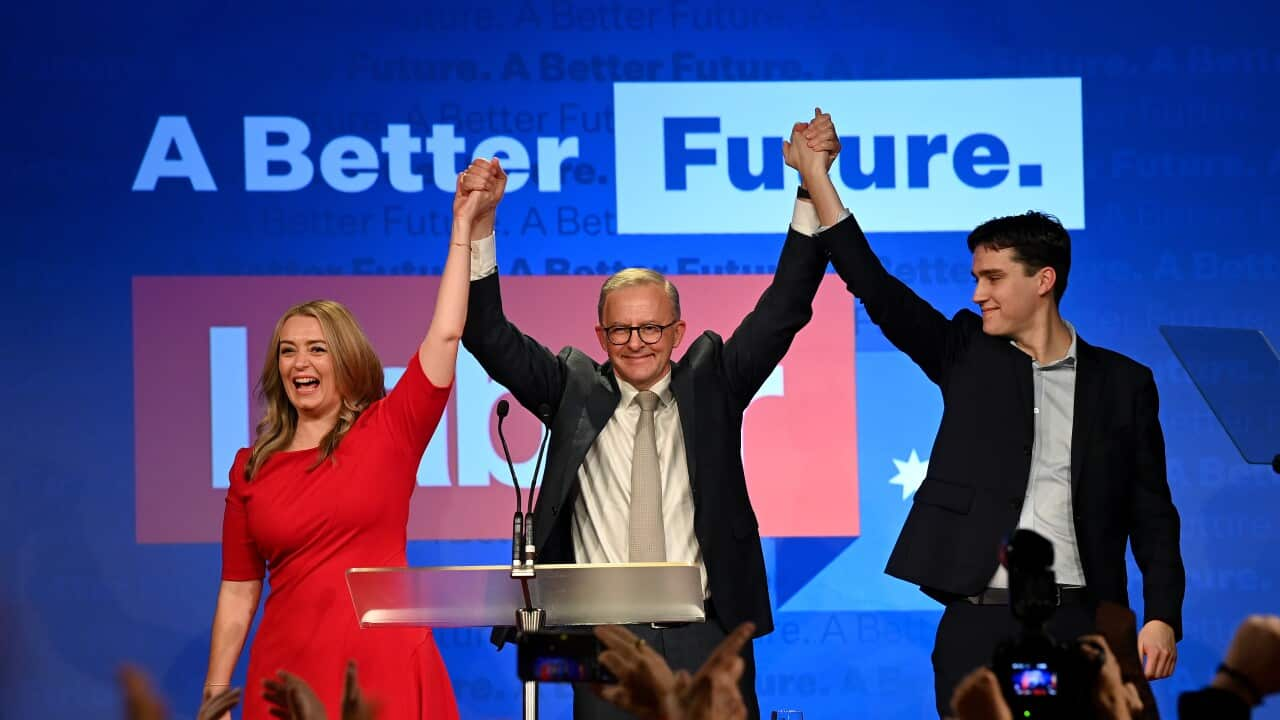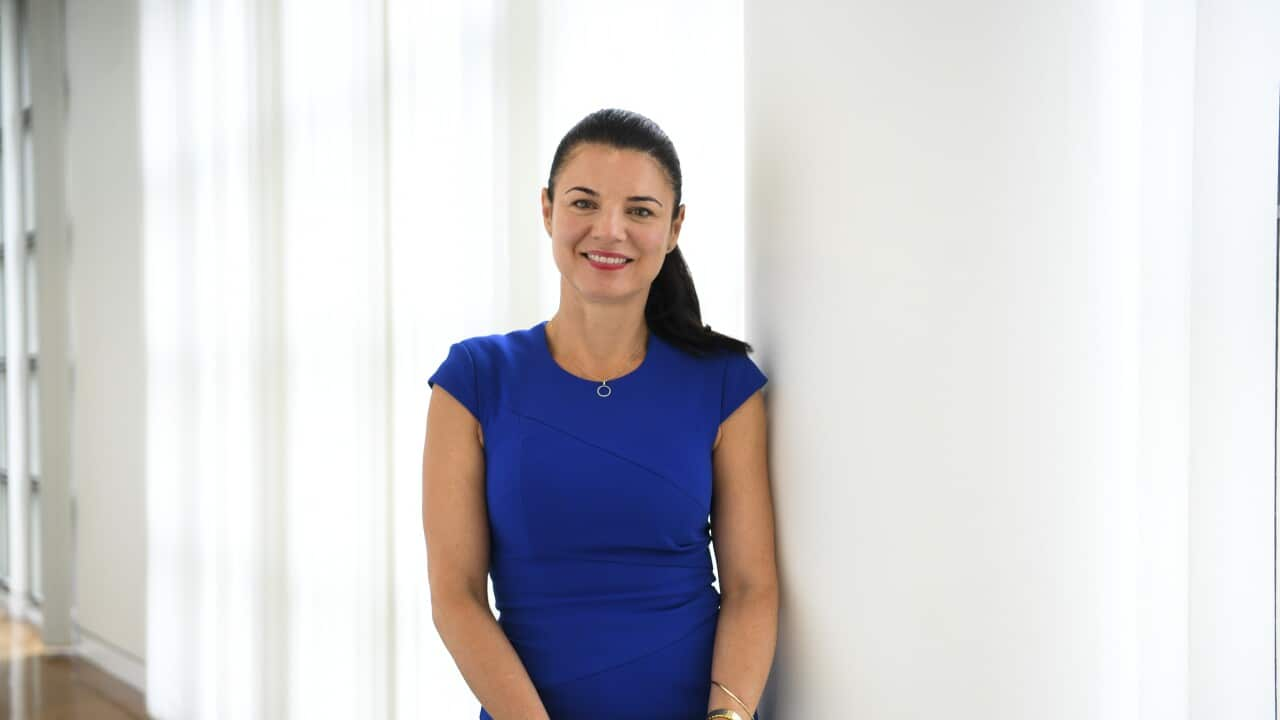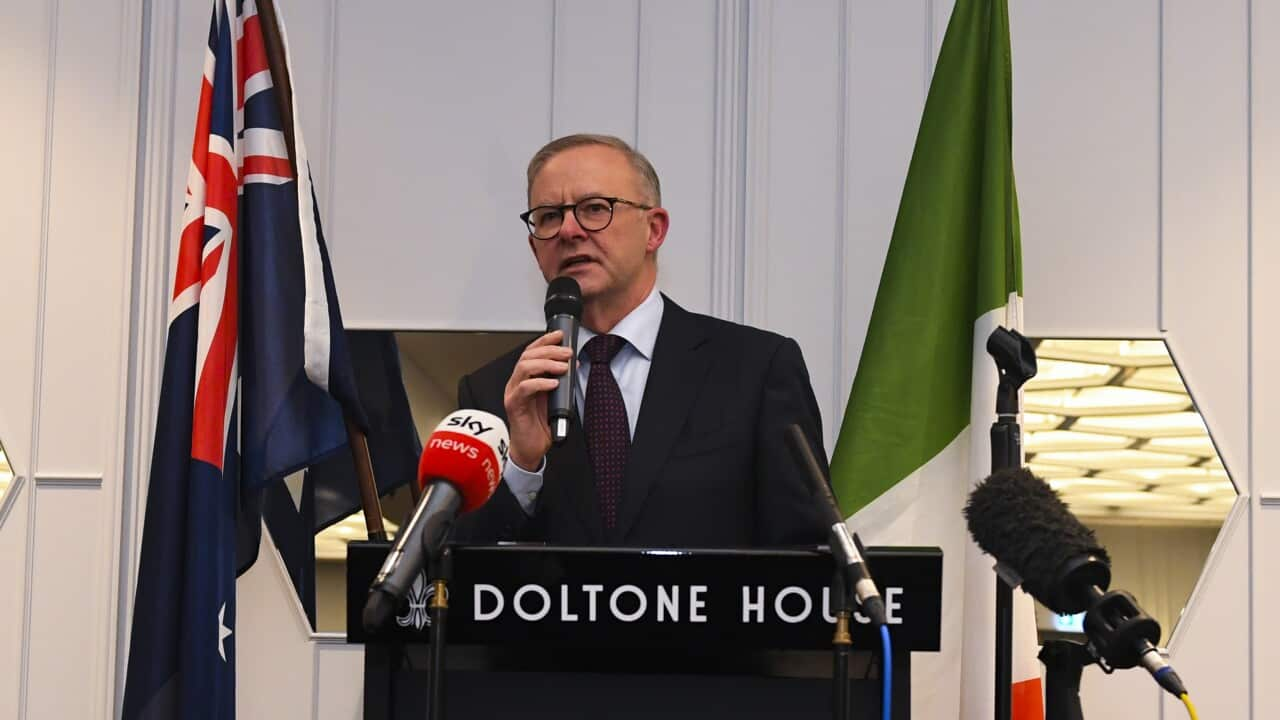Labor's Anthony Albanese is set to become the 31st prime minister of Australia, and the first to come from a non-Anglo-Celtic background.
It's a feat he hopes will send a message "to multicultural Australia that you can achieve anything in this country".
Addressing party faithful at the Canterbury-Hurlstone RSL on Saturday night, the Labor party leader started with a Acknowledgement of Country before saying he committed to the Uluru Statement from the Heart.
"Together we can embrace the Uluru Statement from the Heart," he said.
"We can answer its patient, gracious call for a voice enshrined in our constitution. Because all of us ought to be proud that amongst our great multicultural society we count the oldest living continuous culture in the world."
Fighting back tears, Mr Albanese said that "the Australian people have voted for change. I am humbled by this victory and I'm honoured to be given the opportunity to serve as the 31st Prime Minister of Australia."
He reiterated many of his campaign pitches, including strengthening Medicare, fixing the aged care crisis, establishing a federal anti-corruption commission, and working collaboratively with business and unions to lift productivity, wages, and profits.
Among the people he thanked were his son, Nathan, and his mother, Maryanne, who he frequently referred to throughout the election campaign and how she raised him as a single mother in public housing.
"To my mum, who's beaming down on us, thank you," he said.
"And I hope there are families in public housing watching this tonight. Because I want every parent to be able to tell their child no matter where you live or where you come from, in Australia the doors of opportunity are open to us all."
With both Italian and Irish heritage, Mr Albanese's 2022 federal election victory has been hailed not just as a win for the Labor party - which has been out of power for nine years - but also for the multicultural fabric of Australian society.
Mr Albanese had used the election campaign to signal his commitment to this cause - drawing on his Italian roots to front the Marconi Club in Sydney, while also meeting with the Hindu Council in Sydney’s Parramatta and the Lebanese Maronite community.
In an interview with SBS News prior to polling day on Friday, Mr Albanese was questioned by Chief Political Correspondent Anna Henderson about whether his actions backed up his words, following Labor’s decision to parachute Andrew Charlton into the Western Sydney seat of Parramatta over potential candidates from non-English speaking backgrounds with his personal backing.
Labor also endorsed frontbencher Kristina Keneally as candidate for the neighbouring seat of Fowler over local lawyer Tu Le, who is of Vietnamese-Australian heritage.
It was a plan that has seemingly backfired. With the count set to continue next week, Ms Keneally has suffered a 20 per cent swing against Labor in favour of another candidate of Vietnamese heritage, independent and former Fairfield deputy mayor, Dai Le.
Ms Le is currently leading Ms Keneally 53.54 per cent to 46.46 per cent on a two candidate preferred basis.
Mr Albanese said the diversity of his political lineup was evidence of Labor's capacity to address the concerns of communities from different backgrounds.
“Have a look at what we have with candidates from diverse backgrounds right around the country,” he told SBS News on Friday.
“I’ve been campaigning with people like Sally Sitou in Reid, with Michelle Ananda-Rajah there in Higgins.
"We have someone running for prime minister called Albanese - we have someone running for leadership for Senate called Wong."
Both Ms Sitou and Dr Ananda-Rajah claimed victory over Liberal incumbents Fiona Martin and Katie Allen on Saturday night.
During the election campaign, Mr Albanese said becoming prime minister with his surname would prove "you can do anything in this country".
"We’re a diverse country, and the fact that I have a non-Anglo-Celtic name ... I think it sends a message out there hopefully to multicultural Australia that you can achieve anything in this country,” he told reporters on 12 May.
He said some members of local Italian communities disclosed to him they voted Labor for the first time to see a "modern Australia" reflected in parliament.
after becoming the federal member for Grayndler in 1996.
He's held several ministerial posts, including Minister for Infrastructure and Transport, Minister for Regional Development and Minister for Broadband.
In 2013, he was sworn in as Australia's deputy prime minister under then-prime minister Kevin Rudd for three months.
Following former Labor leader Bill Shorten's loss to the Coalition's Scott Morrison in the 2019 federal election, Mr Albanese was elected unopposed as new party leader on 21 May 2019.
At Mr Albanese's National Press Club address last Wednesday, he said he believed good government addresses "the multicultural miracle of modern Australia".
He declared that "celebrating the diversity" of Australia's multicultural society "gives us strength".
Mr Albanese had used his address to Italian-Australian community members at Marconi club in western Sydney in the final days of the campaign to share his disappointment at the Coalition's widely distributed political ad that claimed: "it won't be easy under Albanese".
, he said during his speech.
"People of my age and older in this room will know that school people made fun of your name," he said.
"My opponents think it's still okay to make fun of someone's name in their advertising, and that is a matter for them to consider."
He stopped short of calling the ad racist but reiterated that Italian community members were unimpressed with the ad's tagline.
The ousted prime minister Scott Morrison said Mr Albanese was being "precious" if he was offended by a political ad during an election campaign.
The prime minister-elect has spoken often of his childhood. He was raised by his single mother, Maryanne, in public housing in the Sydney suburb of Camperdown.
His mother, whose maiden name was Ellery, was born in Australia and was of Irish heritage.
With Maryanne reliant on the disability support pension and Mr Albanese working multiple jobs to make ends meet, he said he "learned the value of the dollar" growing up.
Mr Albanese was under the impression his father, Carlo, died after meeting his mother on a European cruise.
He learned later that he was alive and living in Italy.
After Maryanne died in 2001, Mr Albanese briefly reunited with his father during his travels to Italy.
According to the 2016 Census, there are around one million Australians with Italian heritage.
The new prime minister of the country is leading a Labor government that hasn't held power in nine years, after former Labor prime minister Kevin Rudd lost the 2013 federal election to Tony Abbott.














